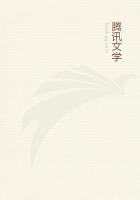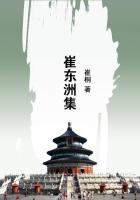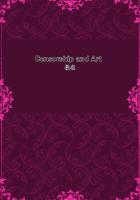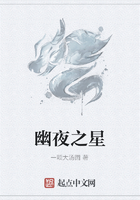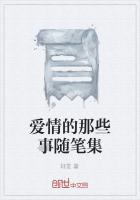Unfortunately, we know but little of Chaucer's habits and experiences, his trials and disappointments, his friendships or his hatreds. What we do know of him raises our esteem. Though convivial, he was temperate; though genial, he was a silent observer, quiet in his manners, modest in his intercourse with the world, walking with downcast eye, but letting nothing escape his notice. He believed in friendship, and kept his friends to the end, and was stained neither by envy nor by pride,--as frank as he was affectionate, as gentle as he was witty. Living with princes and nobles, he never descended to gross adulation, and never wrote a line of approval of the usurpation of Henry IV., although his bread depended on Henry's favor, and he was also the son of the king's earliest and best friend. He was not a religious man, nor was he an immoral man, judged by the standard of his age. He probably was worldly, as he lived in courts. We do not see in him the stern virtues of Dante or Milton; nothing of that moral earnestness which marked the only other great man with whom he was contemporary,--he who is called the "morning star" of the Reformation. But then we know nothing about him which calls out severe reprobation. He was patriotic, and had the confidence of his sovereign, else he would not have been employed on important missions. And the sweetness of his character may be inferred from his long and tender friendship with Gower, whom some in that age considered the greater poet. He was probably luxurious in his habits, but intemperate use of wine he detested and avoided. He was portly in his person, but refinement marked his features. He was a gentleman, according to the severest code of chivalric excellence; always a favorite with ladies, and equally admired by the knights and barons of a brilliant court. No poet was ever more honored in his life or lamented in his death, as his beautiful monument in Westminster Abbey would seem to attest. That monument is the earliest that was erected to the memory of a poet in that Pantheon of English men of rank and genius; and it will probably be as long preserved as any of those sculptured urns and animated busts which seek to keep alive the memory of the illustrious dead,--of those who, though dead, yet speak to all future generations.
AUTHORITIES.
Chaucer's own works, especially the Canterbury Tales; publications of the Chaucer Society; Pauli's History of England; ordinary Histories of England which relate to the reigns of Edward III. and Richard II., especially Green's History of the English People; Life of Chaucer, by William Godwin (4 volumes, London, 1804); Tyrwhitt's edition of Canterbury Tales; Speglet's edition of Chaucer; Warton's History of English Poetry; St. Palaye's History of Chivalry;Chaucer's England, by Matthew Browne (London, 1869); Sir Harris Nicholas's Life of Chaucer; The Riches of Chaucer, by Charles Cowden Clarke; Morley's Life of Chaucer. The latest work is a Life and Criticism of Chaucer, by Adolphus William Ward. There is also a Guide to Chaucer, by H. G. Fleary. See also Skeat's collected edition of Chaucer's Works, brought out under the auspices of the Early English Text Society.
CHRISTOPHER COLUMBUS.
A.D. 1446-1506.
MARITIME DISCOVERIES.
About thirteen hundred years ago, when Attila the Hun, called "the scourge of God," was overrunning the falling empire of the Romans, some of the noblest citizens of the small cities of the Adriatic fled, with their families and effects, to the inaccessible marshes and islands at the extremity of that sea, and formed a permanent settlement. They became fishermen and small traders. In process of time they united their islands together by bridges, and laid the foundation of a mercantile state. Thither resorted the merchants of Mediaeval Europe to make exchanges. Thus Venice became rich and powerful, and in the twelfth century it was one of the prosperous states of Europe, ruled by an oligarchy of the leading merchants.
Contemporaneous with Dante, one of the most distinguished citizens of this mercantile mart, Marco Polo, impelled by the curiosity which reviving commerce excited and the restless adventure of a crusading age, visited the court of the Great Khan of Tartary, whose empire was the largest in the world. After a residence of seventeen years, during which he was loaded with honors, he returned to his native country, not by the ordinary route, but by coasting the eastern shores of Asia, through the Indian Ocean, up the Persian Gulf, and thence through Bagdad and Constantinople, bringing with him immense wealth in precious stones and other Eastern commodities. The report of his wonderful adventures interested all Europe, for he was supposed to have found the Tarshish of the Scriptures, that land of gold and spices which had enriched the Tyrian merchants in the time of Solomon,--men supposed by some to have sailed around the Cape of Good Hope in their three years' voyages. Among the wonderful things which Polo had seen was a city on an island off the coast of China, which was represented to contain six hundred thousand families, so rich that the palaces of its nobles were covered with plates of gold, so inviting that odoriferous plants and flowers diffused the most grateful perfumes, so strong that even the Tartar conquerors of China could not subdue it. This island, known now as Japan, was called Cipango, and was supposed to be inexhaustible in riches, especially when the reports of Polo were confirmed by Sir John Mandeville, an English traveller in the time of Edward III.,--and with even greater exaggerations, since he represented the royal palace to be more than six miles in circumference, occupied by three hundred thousand men.
In an awakening age of enterprise, when chivalry had not passed away, nor the credulity of the Middle Ages, the reports of this Cipango inflamed the imagination of Europe, and to reach it became at once the desire and the problem of adventurers and merchants.

